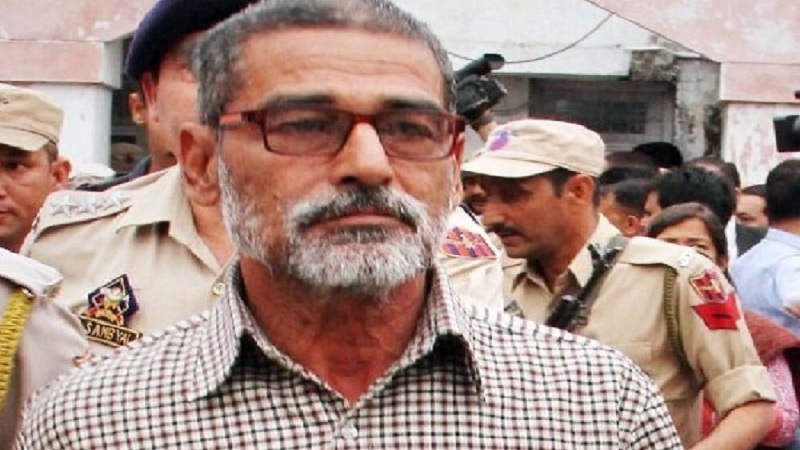 Image Courtesy:universalnewstimeline.com
Image Courtesy:universalnewstimeline.com
In Sanji Ram v. State of Jammu and Kashmir and others (CRWP No. 8945 of 2020), the Punjab and Haryana High Court rejected the benefit of parole to Sanji Ram, who had previously been convicted in the Kathua rape and murder case. The court was hearing the plea of Sanji Ram, who prayed for parole for a period of 8 weeks in order to attend his son’s marriage.
Mr. Sonpreet Singh Brar, appeared as the Advocate for the petitioner. Senior Advocate R.S. Cheema with Arshdeep Singh Cheema and Mr. H.S. Grewal, Additional Advocate General, Punjab appeared for the respondents.
The Bench of Justice S. Muralidhar and Justice Avneesh Jhingan opined, “Given the genuine apprehension expressed as regards the possible law and order consequences if the petitioner’s prayer for parole is granted, the Court is not inclined to accept such prayer at this stage.”
The Bench took into account the report of the Senior Superintendent of Police, Crime Branch, Jammu dated October 31, 2020 which stated that the relatives of the victim had returned from the higher reaches to village Rasana, where the said marriage is scheduled to take place.
It was further argued that if the petitioner is granted parole to attend the marriage “there is every apprehension of there being community clashes and protests in the Union Territories of Jammu and Kashmir.”
Taking cognisance of the submissions, the court dismissed his petition.
Sanji Ram was the village head and priest of the temple where the crime allegedly took place. According to the charge sheet, on January 10, 2018 the 8-year-old girl was kidnapped and allegedly raped in captivity in a small village temple in Kathua district after having been kept sedated for four days before she died.
On June 10, 2019, the Pathankot special court, had awarded life sentence to Sanji Ram, Parvesh Kumar and Deepak Khajuria for the offence of murder under the Ranbir Penal Code. They have also been separately sentenced to 25 years imprisonment for the offence of gang rape under Section 376D of the Code and fined Rupees 1,00,000/- (rupees one lakh only).
The court noted that the main motive behind this tragic incident was the strained relations between the local Hindu community and nomadic Bakarwal Muslims.
The order may be read here:
Related:
Verdict in Kathua rape case gives hope, but India has certainly let her down
Kathua rape case; Judgement pronounced, Justice done
